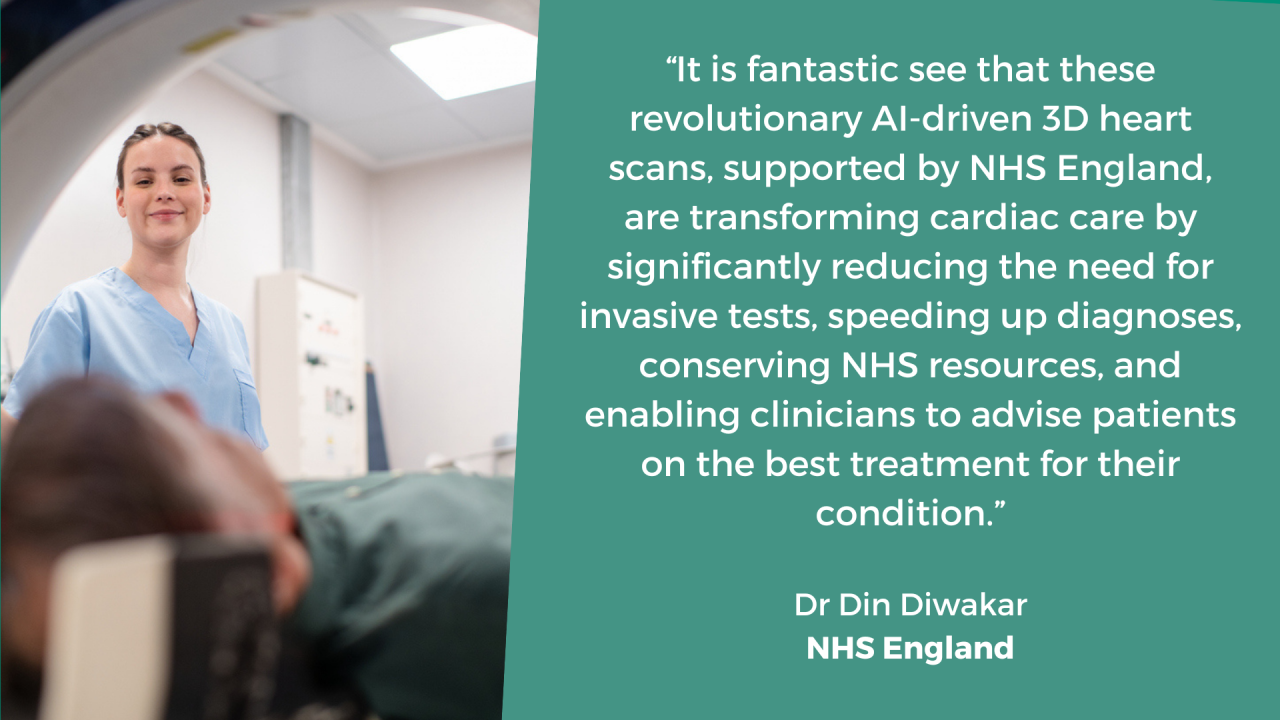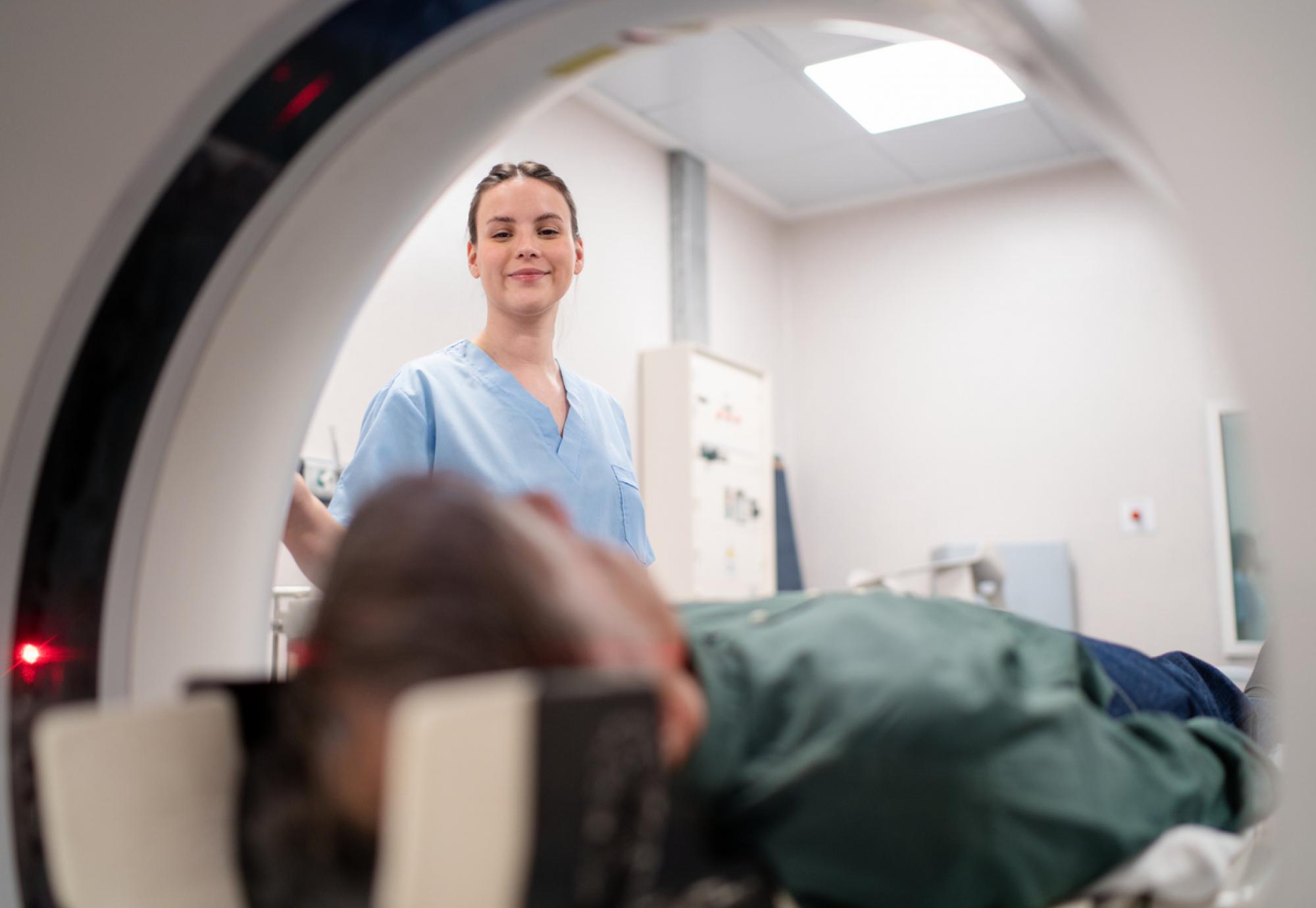Revolutionary AI-driven 3D heart scans are reducing the need for invasive tests and have already saved millions of pounds, according to new analysis.
Now rolled out across 56 NHS hospitals in England, this innovative technology enables doctors to diagnose and treat patients with suspected heart disease much faster by turning a CT scan of their heart into a personalised 3D image, which is then analysed using AI.
This sci-fi-like tool is helping tens of thousands of patients at risk of potentially life-threatening coronary heart disease receive faster and more accurate diagnoses, while also freeing up capacity in the NHS. One patient who benefited from the technology said it quickly identified the cause of her symptoms, which was potentially lifesaving.
A new study published in Nature Medicine found that the technology reduced the number of patients needing invasive angiogram tests by 16% in cases where no further treatment was required and by 7% overall. The number of second heart tests needed within two years was also cut by 12%.
New NHS data shows that over 24,300 patients have benefited since the technology was rolled out in 2021, saving the NHS an estimated £9.5 million – around £390 per patient. In the last year alone, 6,898 patients had access to the AI-driven analysis, called HeartFlow.
NHS England’s National Director of Transformation, Dr Din Diwakar, said:
“It is fantastic see that these revolutionary AI-driven 3D heart scans, supported by NHS England, are transforming cardiac care by significantly reducing the need for invasive tests, speeding up diagnoses, conserving NHS resources, and enabling clinicians to advise patients on the best treatment for their condition.”

The NHS has stated that this is a prime example of how technology will make the NHS fit for future generations as part of the 10 Year Health Plan. Coronary heart disease (CHD) is the most common type of cardiovascular disease, affecting 2.3 million people in England. Previously, patients suspected of having CHD would need a CT scan and, if a narrowing or blockage was suspected, an invasive angiogram to confirm the diagnosis.
The new technology uses specialist analysis of the CT scan to create a personalised 3D model of a patient’s coronary arteries, assessing the extent and location of blockages. This allows many patients to be treated with medication and lifestyle changes, with invasive angiograms only recommended if surgery or a stent is needed. The tool can also suggest the size and position of the stent that would work best for the patient.
The study looked at the use of HeartFlow Analysis among 90,000 NHS patients over three years, showing that personalised imaging reduced unnecessary tests while increasing the number of people being treated for heart disease by more accurately diagnosing patients. NHS England rolled out the technology through the MedTech Funding Mandate programme to ensure patients and the NHS benefit from clinically effective and cost-saving medical technologies faster and more equitably.
Image credit: iStock



















